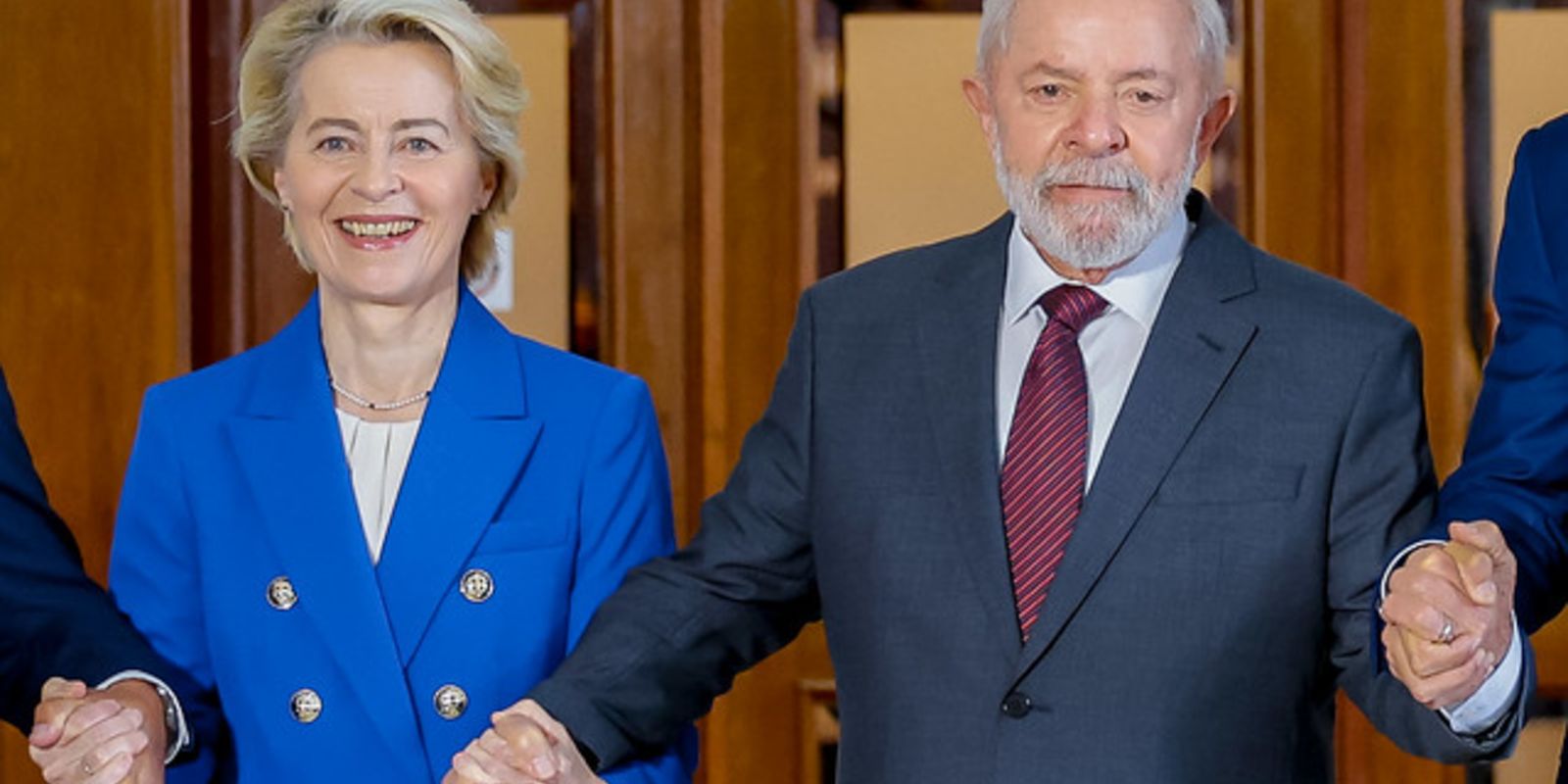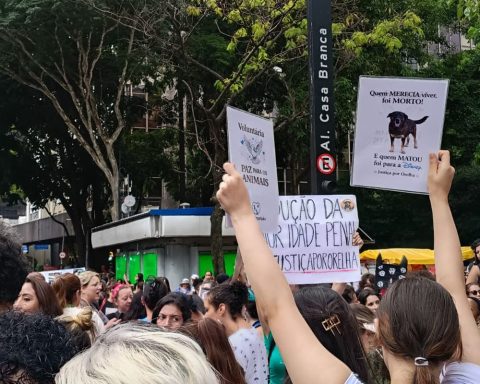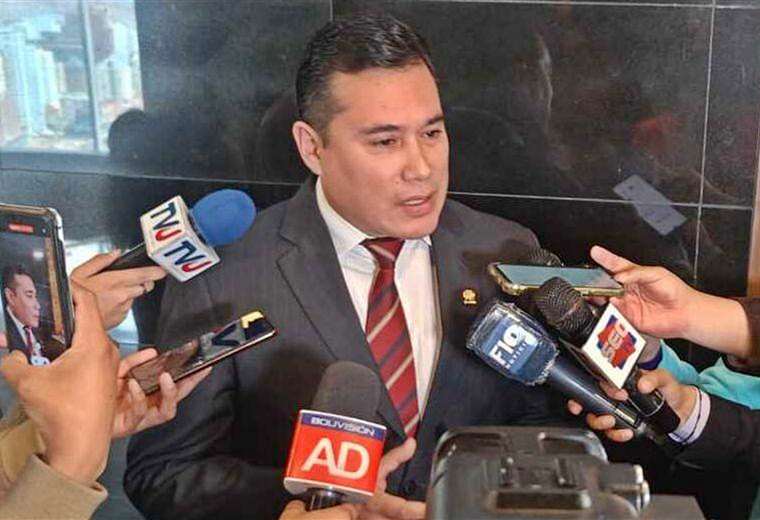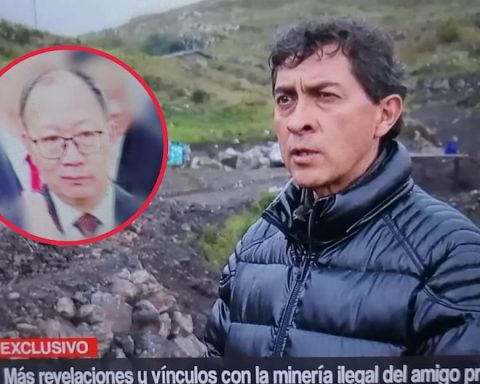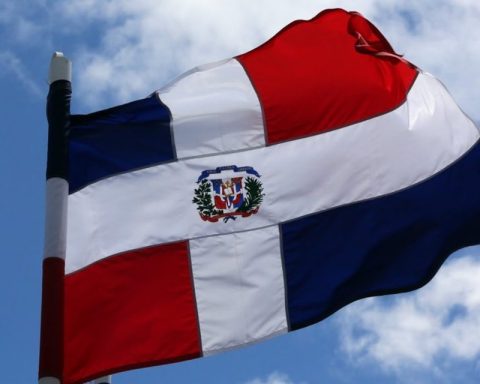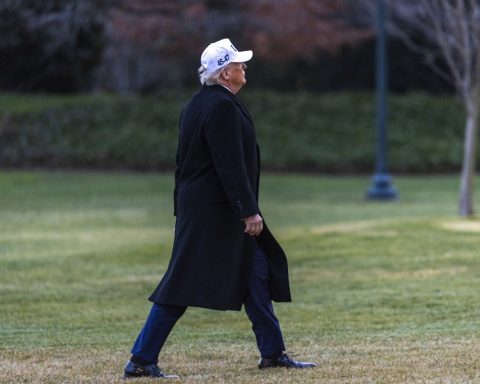The announcement this Friday (6) of the free trade agreement to reduce export tariffs between Mercosur and the European Union marks the conclusion of negotiations, which had been going on for 25 years.
According to Palácio do Planalto, the negotiation stage that began in 2023 took place in a different political and economic context, marked by the experience of the pandemic, the worsening of the climate crisis and the intensification of geopolitical tensions, elements that offered a new backdrop for the negotiations .
“In addition, President Lula’s government understood it necessary to make specific adjustments to the terms negotiated in 2019 in order to make the agreement more favorable to Brazilian interests”, says a statement from Palácio do Planalto.
Negotiations resumed in 2023 were dedicated to drafting new texts for topics that both sides agreed to incorporate into the agreement, especially in the areas of trade and sustainable development; concession rebalancing mechanism; cooperation and review of the agreement.
The resumption of negotiations, according to Planalto, also served to adapt terms that had been previously agreed, in order to make the document more appropriate to the current political and economic framework, specifically in the areas of government purchases, vehicle trade, export of minerals critics and copyright; and to conclude the negotiation of topics that remained open since 2019, specifically in the areas of geographical indications and rules on the implementation of the agreement.
Sustainable development
Among the points agreed in the negotiating stage that began in 2023, is the new annex to the chapter on Trade and Sustainable Development, reinforcing the commitment of both sides to the environmental, social and economic agenda.
Mercosur and the EU agreed on a series of commitments to protect the environment and promote decent work and also committed to adopting actions to promote sustainable products in bi-regional trade, promoting opportunities for small producers, cooperatives, indigenous peoples and communities locations.
The new annex also has a section dedicated to promoting sustainable value chains for the energy transition.
For the first time, a South American bloc trade agreement will include provisions on trade and female empowerment, to encourage cooperation and exchange of best practices in policies that promote women’s participation in international trade.
There was also a commitment to a cooperative approach regarding domestic sustainable measures that impact trade.
In the new Trade and Sustainable Development annex, the EU committed to using data from Mercosur authorities to assess the compatibility of imports from the South American bloc with compliance requirements established by European bloc legislation. This commitment is a recognition of the quality of data produced by institutions in Mercosur countries for the implementation of European legislation.
The parties also recognized that environmental measures that impact trade must be consistent with World Trade Organization (WTO) agreements, must not constitute a disguised restriction on trade, and must be based on technical and scientific information. The parties agreed that the new negotiated annex does not imply endorsement of the environmental requirements adopted by either side, reserving, in this context, their rights within the scope of the WTO.
Another highlight of the agreement was in relation to government purchases as an instrument of industrial policy and economic development. “Given the recognition of the importance of government purchases as an instrument for economic and industrial development, the Government Procurement chapter was the subject of renegotiation between Mercosur and the EU in the negotiation stage that began in 2023. Brazil proposed adjustments to the terms that had been discussed in the past , with a view to preserving the use of the State’s purchasing power as a tool of the new Brazilian industrial policy. Among the adjustments promoted, it is worth highlighting the complete exclusion of purchases made by the Unified Health System; preserving the possibility of technological orders, an important policy for promoting innovation; the elimination of temporal restrictions on the use of technological and commercial offsets; maintaining space for policies to encourage micro and small businesses and family farming; and the preservation of preference margins for national products and services”, says the statement.
Automotive sector
Another negotiation was in the automotive sector with tariff elimination over a longer period. According to Planalto, with new technological routes to enable the energy transition, the automotive sector is undergoing an important transformation around the world. In this scenario, and given the importance of the sector for Brazil, Mercosur negotiated more flexible conditions for tariff reductions for electrified vehicles and for vehicles using new technologies, even those not yet commercially available. In this negotiating stage, the South American bloc highlighted certain vehicles from the schedule applicable to combustion vehicles, previously defined with the elimination of tariffs over 15 years.
“For electrified vehicles, the exemption will take place in 18 years. For hydrogen vehicles, the period will be 25 years, with a 6-year grace period. For new technologies, 30 years, with a 6-year grace period. Until this negotiating stage, no tariff reduction schedule was longer than 15 years”, explains the statement from Palácio do Planalto.
“An unprecedented safeguards mechanism was established with a view to preserving and expanding automotive investments. If there is an increase in European imports that cause damage to the industry, Brazil may suspend the tariff reduction schedule for the entire sector or resume the rate applicable to other origins. [hoje, de 35%] for a period of 3 years, renewable for a further 2 years, without the need to offer compensation to the European Union. The assessment will take into account parameters such as the level of employment, sales and production volumes, installed capacity and degree of occupancy of capacity in the automotive sector. This safeguard for automotive investments is more easily actionable than the general safeguard provided for in the Agreement”, says Planalto.
According to the statement, in an unprecedented way, a mechanism has now been established to prevent unilateral measures by the parties from harming the balance established in the agreement, as such measures have the potential to compromise negotiated commercial concessions and unbalance the agreed result. After the 2019 “political agreement”, the European Union adopted legislation that, depending on how it is implemented, could break the balance reflected in the 2019 understanding in those themes that were not renegotiated in the stage starting in 2023. This is the case, for For example, the quotas offered by the EU for the export of meat from Mercosur, which were not reopened in the 2023 stage.
It was established that an arbitration will define whether the commitments assumed were voided and by what amount, regardless of whether there was a violation of the agreement or not. If this is the case, the party that restricted trade must offer commercial compensation (market opening) to the other side. If there is no agreement regarding compensation, there is the right to “retaliation” (suspension of benefits provided for in the agreement), in the amount defined in arbitration, with a view to reestablishing the balance of the pact.
Based on the package negotiated in 2023-2024, the process of reviewing the implementation of the agreement becomes more inclusive. The review, which aims to assess the impacts of the pact on employment, investment and trade between the parties, should consider opinions and recommendations from civil society actors, such as NGOs, business and employer organizations, social movements and unions. The periodic exercise of reviewing the impacts of the agreement may lead the governments of the parties to negotiate amendments to the text.
Along with the conclusion of the agreement, the EU will offer a package to support Mercosur countries in implementing the pact, particularly in its commercial aspects, taking into account the particular importance of supporting more vulnerable sectors. This commitment is associated with the conclusion of a Cooperation Protocol, under which Mercosur and the European Union will collaborate to define the priorities of the programs to be supported.
